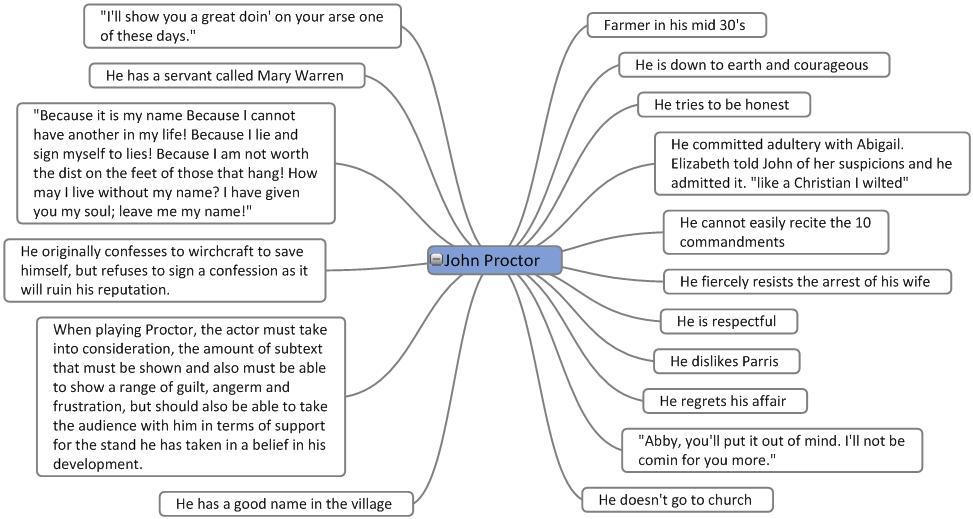
Arthur Miller’s play “The Crucible,” set against the backdrop of the Salem witch trials, serves as a profound exploration of morality, consequence, and the human condition. Among the myriad of characters that populate this harrowing narrative, John Proctor stands out as a central figure whose internal struggle and ultimate decisions illuminate the play’s ethical quandaries. One of the most telling moments in the piece arises when Proctor forgets a specific commandment during a pivotal scene, revealing not only his character flaws but also the broader thematic implications of sin, guilt, and redemption.
To fully appreciate the ramifications of Proctor’s forgetfulness, it is essential to first understand the context of the commandment he neglects. The audience learns that Proctor has been summoned to testify about the various accusations of witchcraft that are slowly engulfing the town of Salem. The moment in question occurs during a discussion with Reverend Hale, who has come to discern the truth behind the tumultuous events spiraling out of control. Hale asks Proctor to recite the Ten Commandments, a quintessential aspect of Puritanical belief and moral governance.
Proctor manages to recite several key commandments with fervor but falters when it comes to one in particular: “Thou shalt not commit adultery.” This specific commandment is notable not merely for its spiritual significance but for its profound personal implications for Proctor himself. The audience is aware of his extramarital affair with Abigail Williams, a fact that lingers ominously over his character and informs much of the ensuing drama.
The failure to remember this commandment quickly becomes a microcosm of Proctor’s inner turmoil and conflict. It is a moment steeped in irony; as he grapples with his infidelity, he simultaneously faces the moral demands of a society intent on absolute purity and righteousness. The amnesia surrounding the commandment of adultery signifies not only Proctor’s fractured sense of self but also exposes the chasm between his public persona and private failings.
This lapse in memory can be interpreted through various lenses, each revealing a distinct layer of complexity in Proctor’s character. Psychologically, it reflects the concept of repression, wherein individuals subconsciously bury feelings of guilt and shame connected to their transgressions. The enormity of his guilt may have manifested in this forgetfulness, thus signaling a poignant struggle against the weight of his sins. Proctor’s inability to articulate the commandment underscores his internal conflict of wishing to seek redemption while grappling with self-loathing.
The societal implications of this moment cannot be overlooked either. The world of Salem, steeped in paranoia and theocratic extremism, is unforgiving to those who stray from its rigid moral codes. Proctor’s forgetfulness highlights the pervasive hypocrisy that often permeates such an environment, where the façade of piety masks deeper failings. By failing to confess readily, Proctor mirrors the very societal structures that demand perfection yet foster an atmosphere of deceit and betrayal.
Inextricably woven into Proctor’s narrative is the theme of personal integrity. By forgetting this crucial commandment, he unwittingly demonstrates the very struggle faced by many individuals caught between personal desires and societal expectations. On one hand, Proctor seeks to uphold his integrity and be a moral compass; on the other, he grapples with the shame and repercussions of his actions. This dichotomy serves as a microcosm of the broader human experience: the desire to adhere to moral codes while wrestling with personal shortcomings.
Moreover, Proctor’s moment of forgetfulness marks a turning point in his journey toward self-awareness and redemption. It catalyzes a deeper reflection on his values and convictions. As the narrative unfolds, his initial hesitancy transforms into a fierce assertion of truth. This shift is significant, providing a contrast to the deceit that engulfs Salem and, by extension, highlighting the importance of personal authenticity in the face of societal judgment.
The forgotten commandment not only resonates within Proctor’s narrative arc but also acts as a lens through which the audience can examine their own failings and moral landscapes. When juxtaposed with the harrowing events in Salem, Proctor’s struggle becomes a universal commentary on human fallibility. It prompts reflections on forgiveness, both self-directed and towards others, and challenges the audience’s understanding of integrity itself.
Ultimately, John Proctor’s forgetfulness of the commandment against adultery serves as a poignant theatrical device, underscoring the complexities of guilt, redemption, and the human condition. It invites viewers to confront their own moral dilemmas, fostering a sense of empathy towards Proctor’s plight while critiquing the societal dynamics that exacerbate sin and hypocrisy. Through this pivotal moment, Miller crafts a compelling narrative that transcends its historical context, inviting contemplation on the nature of morality and the perennial quest for redemption.
In conclusion, the significance of the commandment John Proctor forgets is manifold, reflecting not only his personal struggles but also the societal forces at play within Salem. This crucial moment serves to illuminate the themes of integrity, guilt, and redemption, urging a reevaluation of human morality and the complexities of conscience. As audience members, we are beckoned to navigate these moral waters alongside Proctor, ultimately emerging from the experience with heightened awareness of our own ethical compasses and the societal frameworks that influence them.
